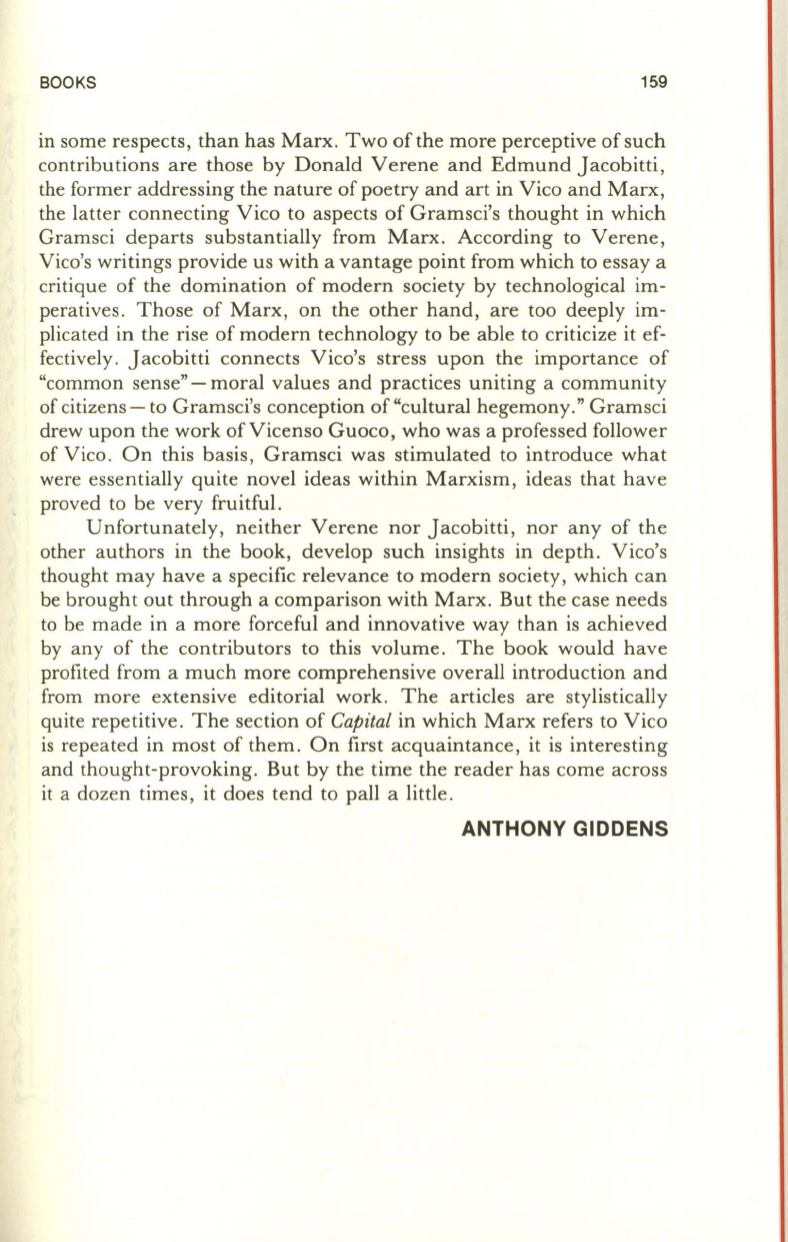
BOOKS
159
in some respects, than has Marx. Two of the more perceptive of such
contributions are those by Donald Verene and Edmund J acobitti,
the former addressing the nature of poetry and art in Vico and Marx,
the latter connecting Vico to aspects of Gramsci's thought in which
Gramsci departs substantially from Marx. According to Verene,
Vico's writings provide us with a vantage point from which to essay a
critique of the domination of modern society by technological im–
peratives. Those of Marx, on the other hand, are too deeply im–
plicated in the rise of modern technology to be able to criticize it ef–
fectively . J acobitti connects Vico's stress upon the importance of
"common sense" - moral values and practices uniting a community
of citizens - to Gramsci's conception of "cultural hegemony.» Gramsci
drew upon the work of Vicenso Guoco, who was a professed follower
of Vico. On this basis, Gramsci was stimulated to introduce what
were essentially quite novel ideas within Marxism, ideas that have
proved to be very fruitful.
Unfortunately, neither Verene nor Jacobitti, nor any of the
other authors in the book, develop such insights in depth. Vico's
thought may have a specific relevance to modern society, which can
be brought out through a comparison with Marx. But the case needs
to be made in a more forceful and innovative way than is achieved
by any of the contributors to this volume. The book would have
profited from a much more comprehensive overall introduction and
from more extensive editorial work. The articles are stylistically
quite repetitive. The section of
Capital
in which Marx refers to Vico
is repeated in most of them. On first acquaintance, it is interesting
and thought-provoking. But by the time the reader has come across
it a dozen times, it does tend to pall a little .
ANTHONY GIDDENS


